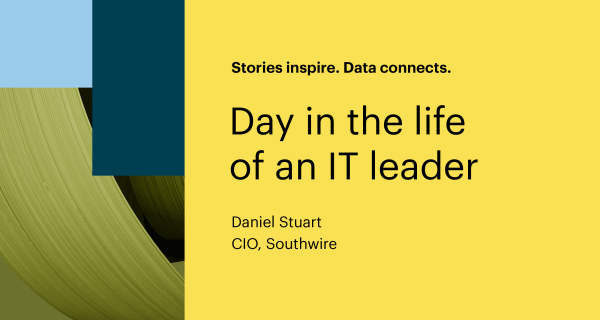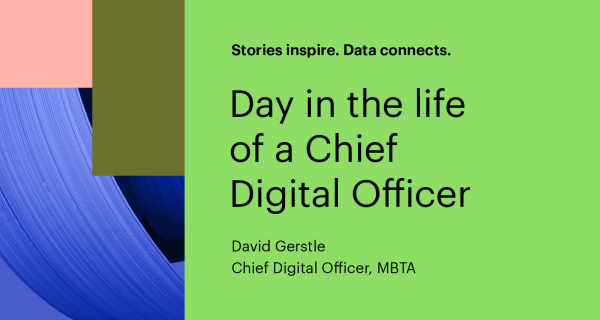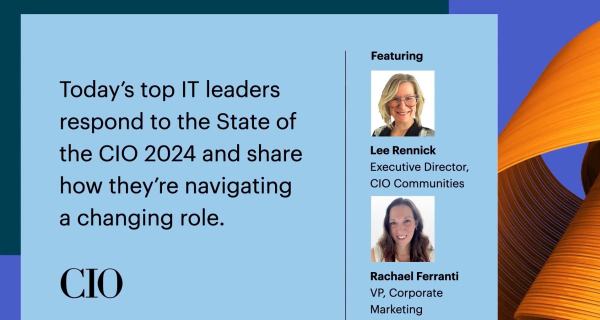The best content marketing is equal parts “content” and “marketing.” That seems laughably obvious, but it’s not easy to strike the perfect balance between creating high-quality content and an equally high-quality distribution plan so that potential buyers not only see your content, but actively engage with it.
An equally strong commitment to both activities is critical to attracting technology buyers to your brand and ultimately converting them into customers, because content marketing plays such a vital role in modern marketing strategy. In the newly released 2023 Technology Content Marketing Benchmarks, Budgets and Trends report, produced by Content Marketing Institute (CMI) and sponsored by Foundry, 76% of technology marketers said content marketing has increased in importance over the past year. And many have the funding to show for it: 51% of respondents predicted their content marketing budget will increase in 2023.
The CMI study found that most technology marketers are feeling pretty good about their content marketing investments. Eighty-five percent said they were using content marketing successfully to create brand awareness. Almost as many say they’ve had success with content marketing to educate audiences (81%), generate demand or leads (80%), and build credibility and trust (78%).
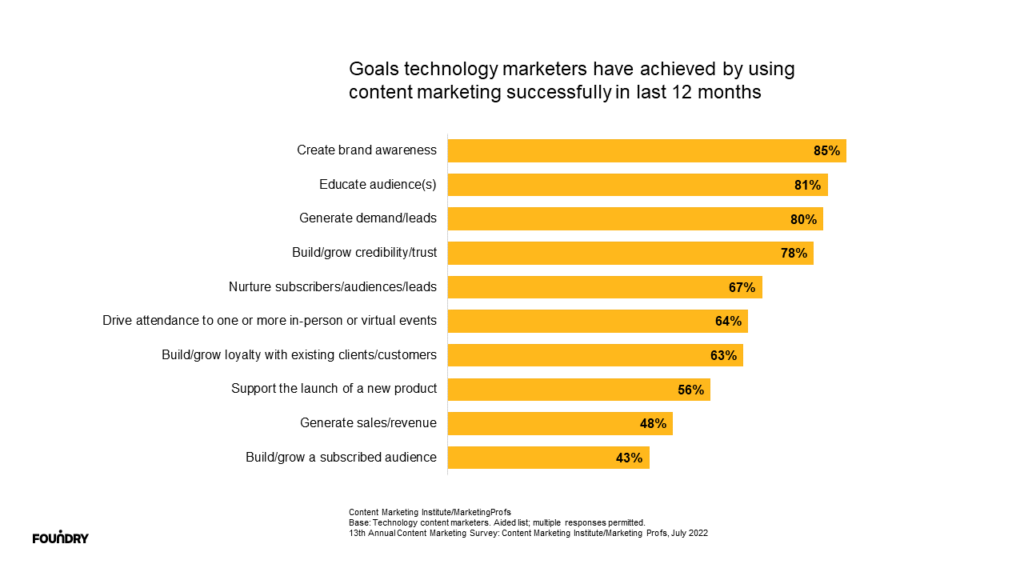
But gaps remain, and they point to the imbalance I mentioned at the top of this post.
Technology marketers’ No. 1 content marketing challenge, cited by 67% of respondents, is creating content that appeals to different stages of the buyer’s journey. Asked specifically about challenges related to measuring content performance, the biggest pain point is integrating and correlating data across multiple platforms (61%).
Those are warning signs, because even though 62% of respondents believe they provide a consistent experience across their customers’ brand-to-demand journey, uneven content quality and siloed reporting data can create potholes along the way that impede performance and results. Despite the success they claim at earlier stages of the buyer journey, fewer than half of the respondents (48%) said content marketing has helped their organization generate revenue.
To be truly successful, content marketing needs to deliver on a brand-to-demand scale, with measurable payoffs at all stages of the buyer journey.
Fishing where the fish are
The CMI report uncovers a glaring gap in distribution strategy. A little over half (52%) of respondents include native advertising in their marketing mix. This percentage has been increasing since 2020 (38%), but it’s still a missed opportunity for nearly half of technology marketers. Overall, technology marketers using paid content distribution channels dropped to 82% from 93% the previous year.
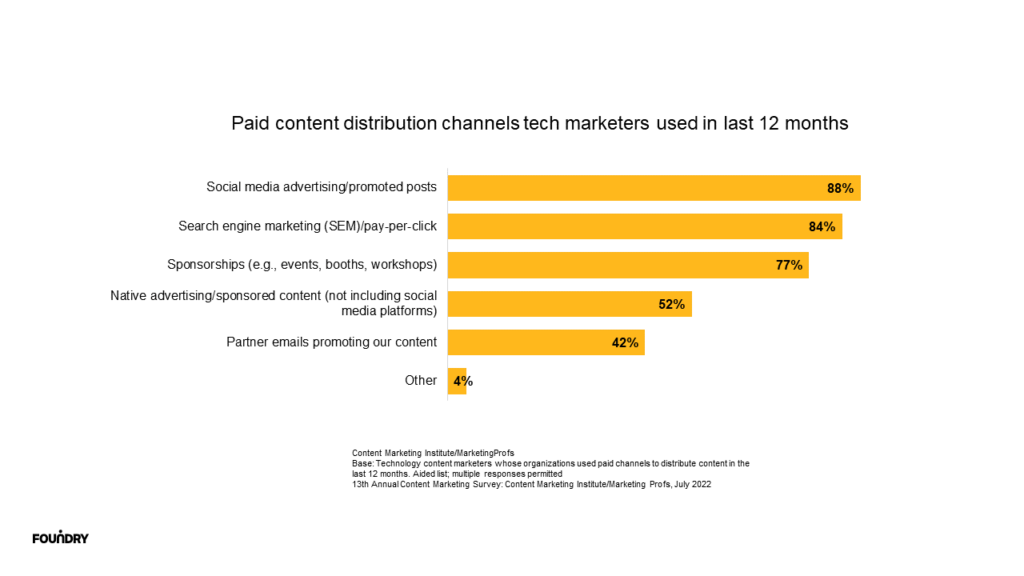
Native or sponsored content should be a critical component of content marketing strategy. You need to fish where the fish are, people!
Case in point: Foundry’s partnership with OpenText to create Digital Futures. The native BrandHub experience, which features a variety of content and dynamic storytelling hosted on CIO.com, found an engaged audience of IT leaders. The six-month campaign resulted in 66,000 pageviews of co-branded content, 27,000 social engagements, 4,000 engaged target accounts, and millions of dollars of pipeline.
Characteristics of top performers
The annual CMI report always shows some interesting deltas between marketers who consider their content marketing work to be extremely or very successful and those who are less bullish on their own performance, and this year is no exception. Top performers in the 2023 report consistently outperform other respondents in several key areas, including:
- Measuring content performance accurately (73% of top performers say they do this, vs. 47% of all respondents)
- Prioritizes the audience’s informational needs over the organization’s (87% vs. 67%)
- Use content marketing to generate sales/revenue (74% vs. 48%)
There’s a clear path to content marketing success. A commitment to quality content, supported by a holistic distribution and promotional plan, provides the perfect balance of “content” and “marketing” to attract and engage with busy IT stakeholders – and convert them into buyers.
Rob O’Regan is Foundry’s global director of content strategy, overseeing a global team of content strategists who work with Foundry’s technology clients to develop and deliver award-winning content marketing programs.

